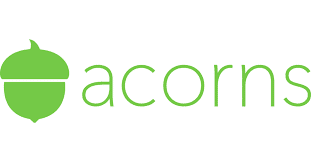Technology is changing many aspects of our world — including change. When I was young, I remember the thrill of cash and the spare change it generated when I spent it. I would scour my change looking for rare coins and deposit the ordinary ones into my trusty piggy bank.
Today that thrill is gone, along with the simplicity a piggy bank or coin jar brought to saving money. Whether you were working on building an emergency fund or simply wanted to save money for a rainy day, change was always there to give you a head start. Today we swipe a piece of plastic or pay for everything online with no paper bills or coins changing hands.
Thankfully, a new type of technology is filling the void electronic transactions have created. Savings apps that automatically round your purchases to the nearest dollar are bringing back the simplicity that spare change brought to saving.
The Best Round-Up Savings Apps
The apps on our best money-saving apps list all do one or two things very well, if not more. For example, some use psychological triggers to help you save wisely while others focus on helping you teach your children how to set and manage long-term financial goals. And while most aren’t officially banks, most have FDIC-insured checking accounts built in, protecting your money from the unknown.
Acorns
Acorns is a comprehensive personal finance app with a built-in checking account, automated budgeting and savings tools, and multiple investment accounts for all stages of life.
Deposit Insurance
Up to $250,000

Apply NowRead the Review
Chime

Chime is a personal finance app that helps you manage your money, save for the future, and build credit. It has one of the best savings yields of any FDIC-insured round-up app.
Deposit Insurance
Up to $250,000

Apply NowRead the Review
Worthy Bonds

Worthy Bonds is a crowdfunding platform, not a banking app. But it does allow round-up investments from a linked bank account, starting at just $10. With all bonds paying 5.65% APY, it’s the highest-yielding option on this list.

Learn MoreRead the Review
Greenlight

Greenlight is a family finance app that helps kids (and parents) manage and grow their money. With high-yield savings, an investment platform, and even a credit card for parents, it’s the most comprehensive app on this list.
Deposit Insurance
Up to $250,000

Apply NowRead the Review
Methodology: How We Select the Best Round-Up Apps
We used six metrics when comparing the micro-saving and micro-investing apps that offer round-up saving functionality. These metrics relate to the cost of the service, allocation of money saved through round-ups, the types of accounts they offer, and other functionality. Here’s what we paid the most attention to in our analysis.
Cost
Round-up apps are all about saving money, so it’s pointless to use them if the fees eat all your savings. To be fair, most apps with this functionality charge reasonable fees, but we did come across a few with fees that were a huge turnoff.
All apps on our list cost under $10 per month, even for the most premium memberships. Two options — Chime and Worthy Bonds — are 100% free to use with no monthly or hidden fees.
How Round-Ups Are Used
It’s important that the money you save grows over time. After all, inflation is a very real force in finance — if your money isn’t growing, it’s shrinking. All the options on our list offer ways to grow the money you set aside, whether through investing in the stock market or earning a meaningful interest rate on your savings balance.
Custodial Accounts
Financial education is valuable at any age, and the sooner you start teaching your kids concepts like savings, the better off they’ll be.
That’s why options like Greenlight are on our list. Custodial accounts and giving kids access to financial information are a great way to teach your children about money management.
Risk Management
Many of the best round-up apps focus on micro-investing — investing small amounts of money over time — to begin building a meaningful portfolio. But investing can be risky. We paid close attention to the risk management features each investing-focused round-up app offers. Every investment-focused app on this list offers highly diversified stock and bond ETFs to help keep risks at bay.
Savings Triggers
Round-ups are a great way to start your savings, but if you’re only saving your spare change, it will take forever to generate a meaningful safety net. All options on this list offer round-ups as well as at least one other savings trigger, like the ability to automatically transfer money to savings on a weekly, biweekly, or monthly basis.
Some apps offer other, more elaborate savings triggers.
For example, Qapital offers several triggers. You can set a spending budget, and when you spend less, the difference automatically goes into your savings.
Additional Banking Features
According to the FDIC, about 5.4% of Americans — more than 7 million people — don’t have bank accounts. That’s why we love to see companies like Chime make quality banking services available to everyone. Many of the companies that made our list offer accessible online banking services.
Round-Up App FAQs (Frequently Asked Questions)
If you’ve never used a round-up app, chances are you have a few questions you need answers to before you get started. Answers to some of the most common are below.
Do Round-Up Savings Work?
Round-up savings apps are a great way to kick start your savings, but their effectiveness largely depends on you. If you don’t spend frequently, round-up savings won’t generate meaningful balances. It’s best to use this feature as a small part of your work toward your overall goal of saving money.
If you want to aggressively save money, consider using round-ups in conjunction with other features, like scheduled savings contributions.
Which Is Better: Acorns or Stash?
That depends on how you’d like to invest your savings. If you’re interested in building and managing your own investment portfolio of individual stocks and ETFs, Stash is the way to go. If you’d rather let the pros handle the investment decisions and rebalancing efforts, Acorns is your best bet.
What Is the Best Round-Up App for Kids?
The hands-down best round-up app for kids is Greenlight. The platform was designed to give children some financial independence while giving parents a fun way to teach financial literacy. However, if you want a family experience on a platform where your and your children’s accounts can be viewed in the same place, you may want to consider Acorns.
Final Word
The options listed above are our favorite automatic savings apps, but by now you know they’re not all the same. Each app has its own features, costs, pros, and cons. Here are a few features you should compare before you decide which one to sign up for:
- Cost. Some round-up apps are free and others have monthly fees. Consider the cost and how it might impact your savings before you sign up.
- Banking Features. Are you one of the millions of Americans who are underserved by traditional banks? If so, consider signing up for an option like Chime that offers complete online bank accounts.
- Investing or Saving. Do you want to grow your money in the stock market or a savings account? Have you considered investing in high-yield savings products like those offered at Worthy Bonds? Make sure you consider where your money’s going when you round up before you sign up with a provider.
- Do You Have Children? If you have children, consider signing up for an app that offers custodial accounts, or signing up for Greenlight for your children and using a different app for yourself.
STASH DISCLOSURES
Paid non-client endorsement. See Apple App Store and Google Play reviews. View important disclosures.
Nothing in this material should be construed as an offer, recommendation, or solicitation to buy or sell any security. All investments are subject to risk and may lose value.
1 Stash Banking services provided by Stride Bank, N.A., Member FDIC. The Stash Stock-Back® Debit Mastercard® is issued by Stride Bank pursuant to license from Mastercard International. Mastercard and the circles design are registered trademarks of Mastercard International Incorporated. Any earned stock rewards will be held in your Stash Invest account. Investment products and services provided by Stash Investments LLC and are Not FDIC Insured, Not Bank Guaranteed, and May Lose Value.
2 All rewards earned through use of the Stash Stock-Back® Debit Mastercard® will be fulfilled by Stash Investments LLC and are subject to Terms and Conditions. You will bear the standard fees and expenses reflected in the pricing of the investments that you earn, plus fees for various ancillary services charged by Stash. In order to earn stock in the program, the Stash Stock-Back® Debit Mastercard must be used to make a qualifying purchase. Stock rewards that are paid to participating customers via the Stash Stock Back program, are Not FDIC Insured, Not Bank Guaranteed, and May Lose Value.
3 Group life insurance coverage provided through Avibra, Inc. Stash is a paid partner of Avibra. Only individuals who opened Stash accounts after 11/6/20, aged 18-54 and who are residents of one of the 50 U.S. states or DC are eligible for group life insurance coverage, subject to availability. Individuals with certain pre-existing medical conditions may not be eligible for the full coverage above, but may instead receive less coverage. All insurance products are subject to state availability, issue limitations and contractual terms and conditions, any of which may change at any time and without notice. Please see Terms and Conditions for full details. Stash may receive compensation from business partners in connection with certain promotions in which Stash refers clients to such partners for the purchase of non-investment consumer products or services. Clients are, however, not required to purchase the products and services Stash promotes.
Stash has full authority to manage a “Smart Portfolio,” a discretionary managed account. Diversification and asset allocation do not guarantee a profit, nor do they eliminate the risk of loss of principal. Stash does not guarantee any level of performance or that any client will avoid losses in their account.






































